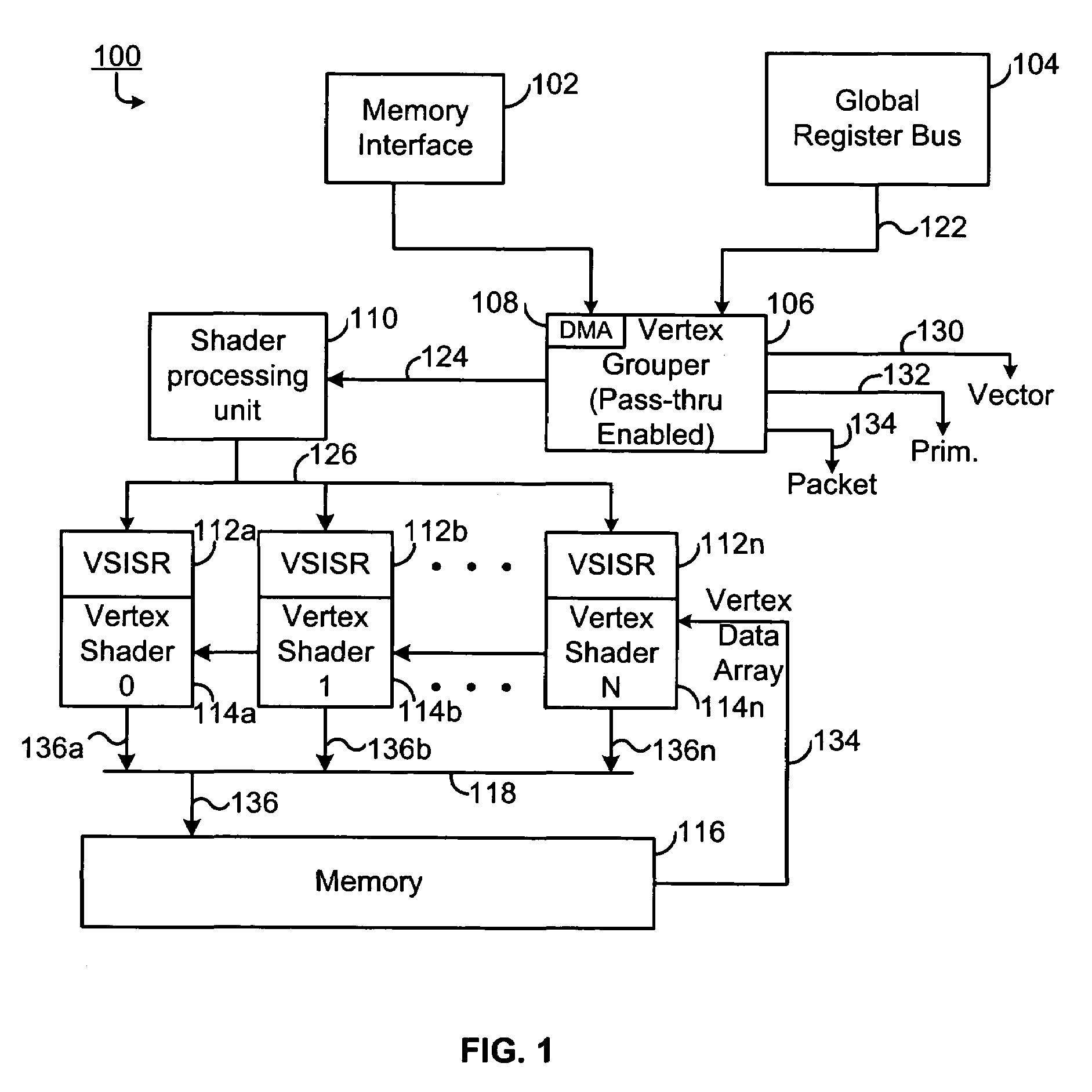Method and apparatus for dual pass adaptive tessellation
a dual-pass adaptive and factor technology, applied in the field of graphics rendering, can solve the problems of affecting the computation of tessellation factors, affecting the relative location of objects, and affecting the processing efficiency of tessellation factors,
- Summary
- Abstract
- Description
- Claims
- Application Information
AI Technical Summary
Benefits of technology
Problems solved by technology
Method used
Image
Examples
Embodiment Construction
[0016]FIG. 1 illustrates an apparatus 100 for dual pass adaptive tessellation. The apparatus 100 includes a memory interface 102, a global register bus 104, and a vertex grouper tessellator 106 having a direct memory access engine 108 dispose therein. The apparatus 100 further includes a shader processing unit 110, a plurality of vertex shader input staging registers 112 coupled to a plurality of vertex shaders 114 and a memory 116 coupled to the shaders 114 across a bus 118. The shader processing unit 110 may be a sequencer or a control flow processor. Moreover, each of the shaders 114 includes a math processing unit, which may be any suitable processing unit capable of executing mathematical operations.
[0017]In one embodiment, the vertex grouper tessellator 106 is pass-through enabled for a first pass. During the first pass, an index list 120 is provided from the memory interface 102 to the direct memory access engine 108. Furthermore, vertex grouper tessellator state data, direct...
PUM
 Login to View More
Login to View More Abstract
Description
Claims
Application Information
 Login to View More
Login to View More - R&D
- Intellectual Property
- Life Sciences
- Materials
- Tech Scout
- Unparalleled Data Quality
- Higher Quality Content
- 60% Fewer Hallucinations
Browse by: Latest US Patents, China's latest patents, Technical Efficacy Thesaurus, Application Domain, Technology Topic, Popular Technical Reports.
© 2025 PatSnap. All rights reserved.Legal|Privacy policy|Modern Slavery Act Transparency Statement|Sitemap|About US| Contact US: help@patsnap.com



